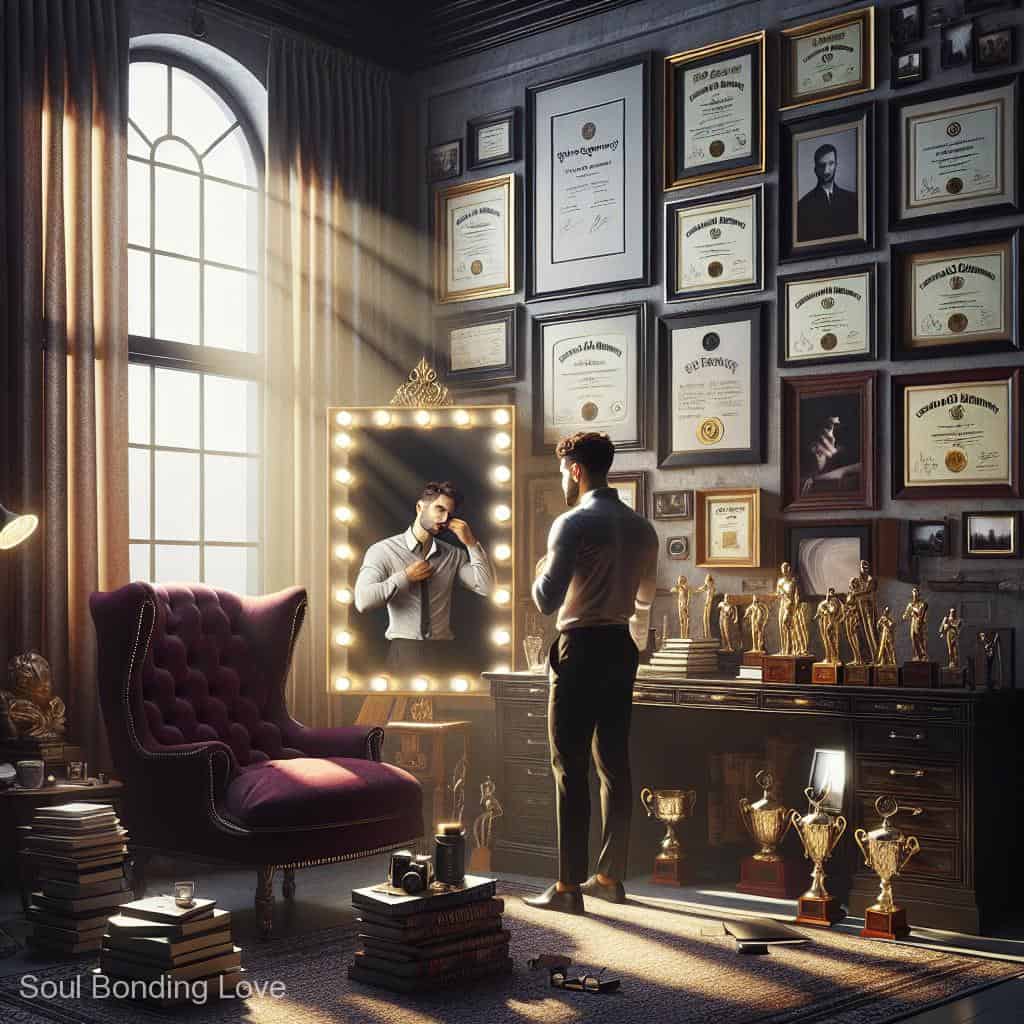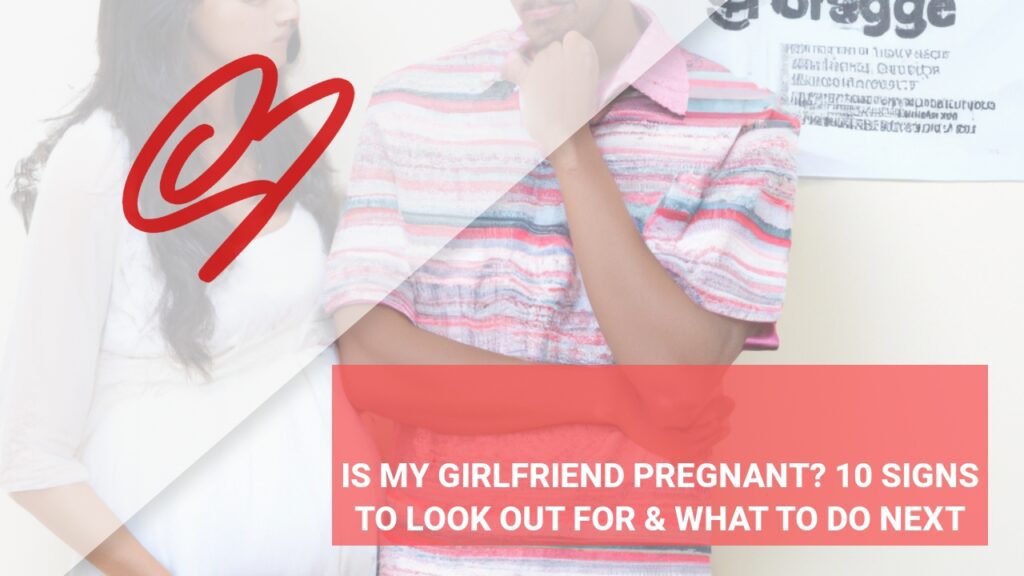Hey there, Look, I’ve gotta admit it’s probably a bit odd to ask for advice from a love blog, but I reckon you guys seem to know what you’re doing so here goes. My name’s Dave and my girlfriend says that she thinks I’m a narcissist. Now, before this whole thing turns into an episode of Days of our Narcissistic Lives – let me tell ya, it ain’t like that at all. For starters, we’ve been dating for about two years now. We met at college and instantly clicked – with shared interests from hiking to horror films – everything seemed perfect. But now her philosophy degree is leading her to diagnose everyone left, right and center… including me. She started saying I was showing ‘classic signs’ of narcissism: self-obsession and lack of empathy – specifically regarding some minor mishaps during last month’s family gathering incident. I’d just gotten a big promotion at work that I had been working my butt off for those past six months; naturally, was excited about the achievement and couldn’t help but brag about it (just a bit!). And mind you not in an annoying way at all! But apparently that makes me self-absorbed! Then came the empathy part where her younger brother Teddy had broken up with his longtime girlfriend (who we never liked anyway). He wasn’t exactly upset about the breakup either; in fact he seemed fairly okay with it! As such, when he told us the news over dinner in quite an upbeat manner, instead of donning an artificial frown and going through the motions just for show’s sake – I let out a slight chuckle. Now she’s made up this narrative where she believes that due to my chuckling response proves my inability to empathize! I mean sure – maybe sometimes I can be occupied with work or preoccupied in personal matters but doesn’t everyone have their moments? I reckon the world doesn’t revolve around me for sure and frankly, it doesn’t need to! Am I missing something here? Her actual concern has rattled me a bit; it’s like my own reality check. So here I am wondering whether her accusations hold any validity or whether it could be merely an overreaction on her part? Thanks for listening to my tale of woe and looking forward to some solid advice from you guys, Dave.
The Raw And Honest Truth I Would Give To My Friends Or Family Member…
Hey Dave,The first thing to point out here is… being labelled a narcissist isn’t a light accusation. However, I’m going to take this back a few steps and unpack it for you.
Here’s what I will say… self-awareness is key. It’s easy to get wrapped up in our own accomplishments and worries, but it’s important not to neglect those around us in the process. For example, your promotion is something you should be proud of, but remember to celebrate others’ achievements as well.
Now on to the empathy part… I can see why your girlfriend might have found your reaction to Teddy’s breakup a bit off-putting. Even if Teddy seemed okay with it, breakups can be a lot more complicated than they appear. And that chuckle? It could have come off as dismissive or unkind.
But let’s be real here, Dave. Does this make you a narcissist? Not necessarily. We all have moments where we react poorly or self-centeredly. The key, however, is our ability to reflect on these moments and learn from them.
I’m going to give you some straight talk now… Communicate with your girlfriend. Ask her for specific examples of your so-called ‘narcissistic’ behavior and see if there’s room for improvement. If you genuinely feel that her accusations are unfounded, stand your ground. Relationships are all about understanding and compromise.
Lastly, keep in mind that it takes two to tango. If she’s busy diagnosing everyone around her, maybe she needs to look at her own actions too.
Remember, Dave, nobody’s perfect. We all have our quirks and flaws. But the important thing is to acknowledge and work on them. Good luck, mate.
But, that’s just my personal viewpoint. I’ve asked an expert relationship coach to break it down for what it is.
It might provide you with some more context.
“My Girlfriend Thinks Im A Narcissist”: Advice From A Relationship Coach

The Heart of the Matter: Why Your Girlfriend May See Narcissism
It’s never easy to hear someone we care about label us with a term as loaded as “narcissist.” But let’s sit down, grab a cup of tea, and talk this through. When your girlfriend mentions that she thinks you’re showing traits of narcissism, it’s like she’s waving a big red flag saying, “Hey, something here is hurting me or causing concern.” Narcissism is a term we often throw around carelessly to describe anyone who seems self-absorbed or overly concerned with their image. But in reality, it’s much deeper than that. True narcissistic personality disorder is rare and involves a consistent pattern of behavior that includes an inflated sense of self-importance and a deep need for excessive attention and admiration.Reflections in the Mirror: Assessing Self-Centered Behaviors
Consider this: Are there moments when your world revolves solely around your thoughts, needs, and desires? Perhaps without realizing it? It’s natural to prioritize our own perspectives – after all, we are each the main character in our personal stories. But when that inner narrative gets too loud, it can drown out the voices of those we love. Your girlfriend might be feeling sidelined or ignored. Maybe she sees signs that make her feel invisible or unimportant whenever you unintentionally prioritize yourself at her expense. It could be little things – like always choosing the movie you watch together or bigger issues such as not acknowledging her feelings during important discussions.The Echoes of Empathy: Tuning Into Her Feelings
Narcissism aside for a moment – it seems like your girlfriend feels misunderstood or unvalued. And let’s face it; empathy isn’t always our first reaction when faced with criticism (especially if we’re not fully aware of our actions). Listen to her concerns without immediately jumping on the defense train. Allow her to express why she feels this way without interruption. This doesn’t mean accepting an unfair label; rather it’s about understanding where she’s coming from. Active listening can be so powerful here – repeat back what you’ve heard her say so she knows you’re genuinely engaged with what she’s sharing. It can deepen your connection and show that you truly value her perspective.Mirrored Conversations: Engaging in Open Dialogue
Now comes the real talk—communication is key! Having an open dialogue where both parties feel safe to express themselves honestly can shine light on dark corners previously unexplored. This isn’t just about offering your point of view but also seeking clarity on why certain behaviors are being interpreted as narcissistic. Ask questions! Be curious about what specific actions have been bothering her and discuss ways these concerns might be addressed together moving forward. It takes courage to delve into these conversations because they can challenge our self-perception and might even reveal some uncomfortable truths about ourselves—but this is how growth happens.A Path Forward: Building Bridges Instead of Walls
Remember lovebird – relationships are intricate dances requiring synchronized steps from both partners. If one person constantly leads without consideration for their partner’s rhythm—the dance falls apart. Reflect on whether there have been moments where balance was off in your relationship dance—moments where maybe you took more than you gave back—emotionally speaking—and consider how this has made your girlfriend feel.You don’t have to agree with everything said but showing willingness to understand will help build bridges instead of walls between both hearts involved.
Your intention should always be clear: You want a thriving relationship where both participants feel seen, heard, and valued equally.
This isn’t just insightful for addressing potential narcissistic tendencies—it’s fundamental advice for anyone looking to nurture lasting partnerships based on mutual respect.
You’ve got this! Now take these reflections away from here into heart-to-hearts full of authenticity & genuine commitment towards each other’s happiness.
With Everything That’s Been Said & Done (Or Alluded To 😬), What’s Next?
Reflect on Your Girlfriend’s Concerns
Hearing ‘narcissist’ can be tough, Dave. If you’re a tad rattled, it means you care about how she sees you. That’s a good sign! Take a deep breath and put on some introspection glasses. It’s important to understand where she might be coming from, even if it stings. Think about those times – were you really just sharing your success, or could there have been more ‘me’ than ‘we’? And that chuckle – could it have seemed cold?Self-reflection isn’t admitting wrongdoing; it’s about personal growth. Maybe jot down instances where her points seem valid and others less so. This exercise isn’t about proving her wrong but rather understanding the balance between self-esteem and self-absorption. Remember, admitting we have room to improve is the first step to becoming better partners.
Talk It Out With Real Curiosity
Dave, communication is key in relationships! Set up a time with your girlfriend for an open dialogue – not an argument, mind you. Approach her with real curiosity about her feelings and perspectives. Use phrases like “I want to understand why…” or “Can you help me see…” You’ll be creating a safe space for both of you to share.It sounds like this isn’t just about that one dinner or promotion; maybe she’s seen patterns that concern her. Listen actively without getting defensive. If things start heating up, take a break and revisit calmly later on – emotions can cloud judgement after all.
Acknowledge Her Feelings
Whether or not you agree with the ‘narcissist’ label, your girlfriend’s feelings are as real as they get in your shared reality show of love. Acknowledge whatever she’s feeling by saying things like “I see this is important to you,” and mean it! Showing empathy here is crucial—it proves that regardless of the accusation’s accuracy, what matters is how she feels affected by your actions.This doesn’t mean falling on your sword; instead, recognize the impact of certain behaviors inadvertently causing ripples in relationship waters—and if needed apologize sincerely for any unintended hurt.
Educate Yourselves Together
Jump into some research together—no need to turn into overnight psychologists but getting clued up on what narcissism really means could help both of you distinguish between armchair diagnosis and possible truths—use reputable sources though!Understanding more will also equip both of you better should professional help be considered down the line (which there’s no shame in seeking out). Plus doing this together shows cooperative spirit—it’s like couple problem-solving 101!
Balance Self-Interest With Empathy
Every relationship has give-and-take moments—the trick lies in finding balance without losing authenticity. Reflect on ways where perhaps enthusiasm over personal achievements might overshadow shared moments—like celebrating Teddy being okay post-breakup instead of highlighting only personal victories?On flipside don’t suppress genuine happiness—just mix a healthy dose of consideration for others’ feelings into conversation cocktail too! It’s totally cool to celebrate personal wins as long as we’re also cheering equally for our partner’s successes—or acknowledging their challenges.

